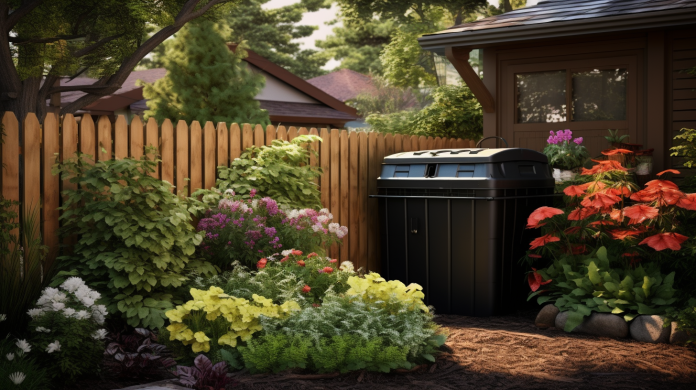Composting is an essential practice for environmentally-conscious individuals and businesses. However, achieving a successful compost mix requires careful consideration of the ingredients used.
In this article, we will explore the green materials that are essential for composting, as well as the brown materials to avoid. Additionally, we will discuss the importance of adding microorganisms to enhance the composting process and provide tips for maintaining the perfect compost mix.
Benefits of Composting
To ensure success with composting, there are a few tips to keep in mind:
First, it is important to maintain a proper balance of green and brown materials, as this will aid in the decomposition process.
Second, regular turning or mixing of the compost pile will promote aeration and speed up decomposition.
Lastly, keeping the compost pile moist but not saturated is crucial for the breakdown of organic matter.
Essential Green Ingredients for Compost
Green materials are an important component of compost, as they provide nitrogen sources that aid in the decomposition process. Here are four essential green ingredients that gardeners can add to their compost:
- Grass clippings: Freshly cut grass is rich in nitrogen and can help speed up the composting process.
- Vegetable scraps: Kitchen waste like fruit and vegetable peels are high in nitrogen and can add valuable nutrients to the compost.
- Coffee grounds: Used coffee grounds are an excellent source of nitrogen and can also help to balance the pH level of the compost.
- Green leaves: Fallen leaves and pruned green foliage can be added to the compost pile to provide nitrogen and increase the organic matter content.
Brown Materials to Include in Compost
Brown materials, also known as carbon-rich materials, play a crucial role in the decomposition process. These materials are high in carbon content and provide the necessary energy source for microorganisms to break down organic matter effectively.
Examples of brown materials include dried leaves, straw, wood chips, and shredded cardboard. When added to the compost pile, these materials help create the ideal environment for beneficial bacteria and fungi to thrive, aiding in the decomposition process.
Additionally, brown materials help maintain the proper moisture levels in the compost pile, preventing it from becoming too wet or compacted.
Compost Ingredients to Avoid
Avoiding certain ingredients in your compost is crucial for maintaining a healthy and effective composting process. While composting is a natural and beneficial way to recycle organic waste, there are some materials that should be avoided to ensure the quality of your compost. Here are four common composting mistakes to avoid:
- Meat and dairy products: These can attract pests and rodents, causing odor and hygiene issues. Instead, opt for compost ingredient alternatives such as fruit and vegetable scraps, coffee grounds, and eggshells.
- Oily and greasy foods: These can slow down the composting process and create an unpleasant smell. Stick to composting dry and carbon-rich materials like leaves and straw.
- Diseased plants: Including plants that have been affected by diseases or pests can spread them to the rest of your compost and garden. Dispose of these plants separately.
- Synthetic chemicals: Pesticides, herbicides, and other chemical-based products can disrupt the natural decomposition process and harm beneficial microorganisms. Stick to natural ingredients for a healthier compost pile.
Adding Microorganisms to Your Compost
To enhance the decomposition process and promote nutrient-rich compost, it is important to incorporate various microorganisms into your compost pile. Microorganisms, such as bacteria, fungi, and actinomycetes, play a crucial role in breaking down organic matter into simpler forms.
These microorganisms have numerous benefits for your compost. They help to speed up the decomposition process by breaking down complex organic compounds into smaller molecules that are easier for plants to absorb.
Tips for Maintaining the Perfect Compost Mix
Maintaining a perfect compost mix requires regular monitoring and adjustment. To ensure that your compost is in the best condition for decomposition, follow these tips:
- Monitor compost temperature: A compost pile that heats up to around 140-160°F (60-70°C) indicates that the microorganisms are actively breaking down the organic matter. Use a compost thermometer to measure the temperature regularly.
- Turn the compost: Turning the compost helps to aerate it and mix the materials, promoting decomposition. Aim to turn the pile every 1-2 weeks to ensure even decomposition and prevent any unpleasant odors.
- Adjust moisture levels: The compost pile should be moist, but not soggy. If it feels too dry, add water to maintain a consistency similar to a damp sponge.
- Balance carbon and nitrogen ratios: Achieving the right balance of carbon-rich (browns) and nitrogen-rich (greens) materials is crucial for successful composting. Adjust the mix by adding more greens if the compost is taking too long to decompose, or more browns if it becomes too wet and smelly.
Key Takeaways
- Grass clippings, vegetable scraps, coffee grounds, and green leaves are key ingredients to include in compost for their high nitrogen content and ability to speed up the composting process.
- Dried leaves, straw, wood chips, shredded cardboard, and sawdust are essential brown materials that contribute carbon and aid in decomposition and moisture control.
- Adding microorganisms, regularly turning the compost pile, monitoring temperature and moisture levels, and maintaining a balance of carbon and nitrogen ratios are necessary steps to ensure successful composting.
- It is important to avoid:
meat and dairy products
oily and greasy foodsThey will most likely attract pests, disrupt the natural decomposition process, and spread diseases and pests to the compost and garden.
Conclusion
By including essential green ingredients and brown materials, while avoiding certain compost ingredients, a perfect compost mix can be achieved.
Additionally, adding microorganisms to the compost can enhance the decomposition process.
By following these tips, one can create a successful compost pile and contribute to a more eco-friendly environment.
Please see our supporting article:
Master the Art of Composting: Tips and Tricks Revealed
